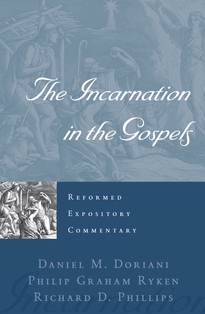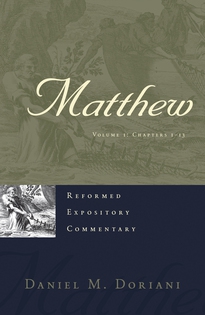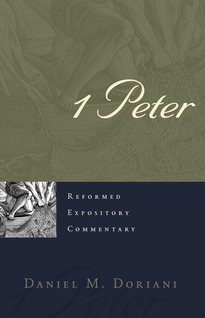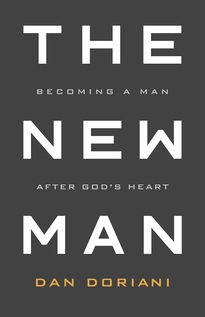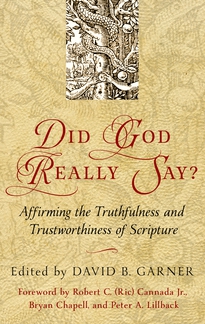Dan Doriani is vice president of strategic academic projects and professor of theology at Covenant Theological Seminary. Previously he was senior pastor of Central Presbyterian Church in Clayton, MO. Dan will be one of the speakers at The Faithful Shepherd Pastor’s Retreat 2016. He has written 7 P&R titles and has coauthored one.
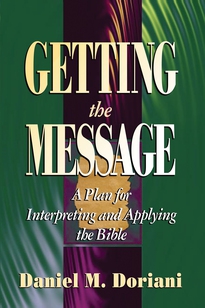
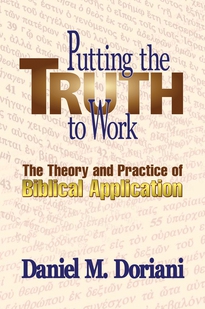
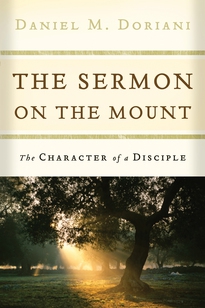

1. Getting the Message: A Plan for Interpreting and Applying the Bible
272 pages | List Price: $16.99 | Paperback
Summary — Presents solid principles and clear examples of biblical interpretation. Doriani summarizes the main principles for interpretation in a single, easily remembered acronym: CAPTOR.
2. Putting the Truth to Work: The Theory and Practice of Biblical Application
352 pages | List Price: $17.99 | Paperback
Summary — Ideal for pastors and professors, this book explains how to apply Scripture to daily life. It identifies four categories of application and shows how they function in doctrinal passages.
3. The Sermon on the Mount: The Character of a Disciple
256 pages | List Price: $15.99 | Paperback
Summary — “Among Jesus’ teachings, the Sermon on the Mount is perhaps the most beloved, the best known, the least understood, and the hardest to obey,” says Daniel Doriani. His skillful exposition and gripping application of the sermon will help readers realize in thought and in life the character of true disciples.
4. James
240 pages | List Price: $22.99 | Hardcover | Reformed Expository Commentary series
Summary — With 59 commands in 108 verses, the epistle of James contains an obvious zeal for law. James, in his imperatives, directs us to the royal law, the law of King Jesus (2:8). Because of this, the hasty reader will not see much of the gospel in James, but as Doriani reveals in his insightful commentary, the double mention of God’s grace at the rhetorical climax of the book shows that the gospel of James is still the message of God’s grace for sinners.
5. The Incarnation in the Gospels – Coauthored with Philip Graham Ryken & Richard D. Phillips
240 pages | List Price: $22.99 | Hardcover | Reformed Expository Commentary series
Summary — This book contains sermons preached in advent by three of America’s most respected pastors. These sermons seek to meet the needs of their people and use the opportunity the season affords in preaching about Christ and redemption.
6. Matthew (2 Volume Set)
1,200 pages | List Price: $59.99 | Hardcover | Reformed Expository Commentary series
Summary — While paying careful attention to a commentary’s traditional interest in the structure, backgrounds, and grammar of the text, Doriani also supplies the theological commentary, Christ-centered focus, and personal and corporate applications that pastors and teachers need. Each chapter attends to Matthew’s original intent and seeks to express that intent in ways that evoke his distinct voice, so as to fulfill the goal of Matthew’s gospel—making disciples by forming the mind, heart, and hands of believers.
7. 1 Peter
288 pages | List Price: $24.99 | Hardcover | Reformed Expository Commentary series | SAMPLE CHAPTER
Summary — In this exposition of 1 Peter, Daniel Doriani explains how the work of Christ enables Christians to live with hope, joy, and faithfulness in a pagan world. He also explores Peter’s emphasis on the kind of life that pleases God—a life that includes respect for authorities, just or unjust; godly behavior as a wife, husband, or elder; and, by God’s grace, good deeds, courage, and a firm stand in the face of trials.
8. The New Man: Becoming a Man After God’s Heart
280 pages | List Price: $14.99 | Paperback | SAMPLE CHAPTER
Summary — What should manhood look like? Focusing on character building, Doriani seeks out the biblical pattern for masculinity that transcends culture. Discover how you can reflect God’s character in areas of life including marriage, friendships, work, fitness—even play. Each chapter includes discussion questions. This is a revised and expanded edition of The Life of a God-Made Man (Crossway, 2001).
